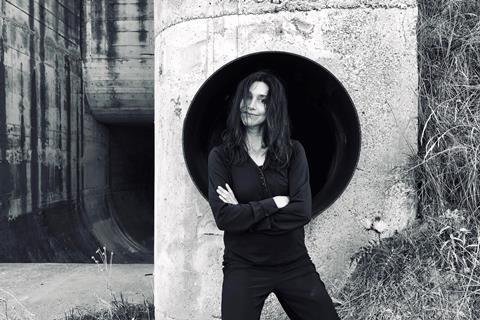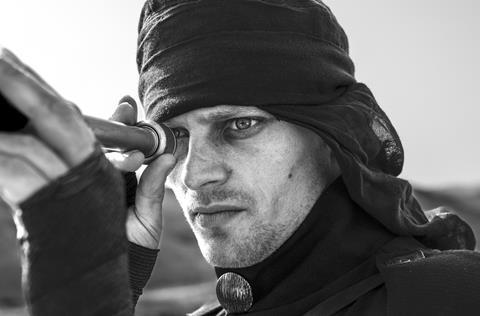
US-Belgian director Jessica Woodworth shot her ambitious new film Luka in Sicily, in black and white and in 16mm, as a complex European co-production.
The film has its world premiere this week in the Big Screen competition of International Film Festival Rotterdam (IFFR).
Geraldine Chaplin and Jonas Smulders star in the English-language film, about a young man, played by Smulders, who heads off to join the army at the remote and desolate Fort Kairos. Under the command of the General, played by Chaplin, the soldiers are waiting to confront enemies from the north. The enemies, though, never seem to arrive. It is based classic Italian novel, Dino Buzatti’s The Desert Of The Tatars.
Woodworth shot the film through Bo Films, the Belgium-based company she runs with her partner, Peter Brosens. They set it up as a co-production with another Belgian outfit, Diana Elbaum’s Beluga Tree, and Volya, run by Denis Vaseline and Fleur Knopperts, in the Netherlands. Germany-based Films Boutique took on sales duties at script stage. “They had faith that it would become something very special,” says Woodworth. “They’ve remained super-steady, devoted, rocky solid.”
Budgeted at €3m, Woodworth describes it as a ”huge struggle” to complete the film at that level. She shot Luka as if it had a much bigger budget, with 60 or 70 people regularly playing in front of the camera (mostly Sicilian extras) and a big crew too.

Woodworth first encountered the Buzatti novel when she was studying for a degree in Italian literature. “It’s so clear and so mysterious at the same time…it’s just men waiting for an enemy that perhaps doesn’t exist,” the director explains. As times passes, the soldiers’ angst increases. “What I really, really love is its intrinsic humour. It’s a sombre concept but there is this absurdity that I respond to.”
The director grew up hearing stories about army life. Many members of her extended family are in the US military, “serving around the world.” Her uncle flew jets in Vietnam.
She says she made the film in English partly to distance herself from the source material. Buzatti’s book is revered in Italy and has already inspired a highly regarded Italian adaptation, Valerio Zurlini’s 1976 film The Desert Of The Tatars .
As in the previous films that Woodworth and Brosens have made together, ranging from Mongolian-set Khadak, winner of Venice’s Lion of the Future award, to Altiplano, partly set in the Andes, Woodworth says landscape plays an important part in Luka. “It’s not as a background but almost as a character,” Woodworth says of the spectacular Sicilian locations used in the movie.
The director originally intended to shoot the film in Armenia. She had made extensive preparations and all the locations had been secured when armed conflict between Armenia and Azerbaijan broke out. The production shifted to Sicily. The main location is an “unfinished dam of cosmic proportions,” says Woodworth. During shooting, there was an extreme heatwave, the volcanic Mount Etna was rumbling away and there were many fires. She shrugs this all off, saying it fitted with the “apocalyptical” nature of the story.
The dialogue is all in English to ”divorce from geography. It was the most freeing choice,” says Woodworth, who wants the audience to have no real idea of where it is set or of the nationality of the characters.
Luka will be released in Belgium and the Netherlands in September by Filmfreak.
























No comments yet